Who’s buying a courthouse?
Plus: The wardrobe mistake that could hurt your credibility

What does it mean to be an effective advocate? Zealous advocacy is an ethical duty, but applying it in practice is another challenge entirely. It’s not just about passion—it’s about strategy, communication and knowing when to push and when to pull back. And you won’t want to miss our round-up of this week’s biggest (and strangest) legal headlines.
Plus, we’re covering:
- 8 tips for getting better at delegating tasks to others
- Do the clothes you wear give you more credibility?
- What to know about LinkedIn's algorithm change
- The best way to protect your practice from hackers

Advocacy comes in many forms
As lawyers, it is our job to solve our clients’ problems. Which is always easier said than done, but becomes something of an impossibility when the law itself is the thing that is problematic. At Juvenile Law Center in Philadelphia, Senior Attorney Nadia Mozaffar runs into this issue on a daily basis. Raise the Bar sat down with Mozaffar to talk about the difference between advocating for one child vs. the well-being of every child. -Emily Kelchen
The org you work at was the first legal nonprofit to ever focus on the juvenile justice and child welfare systems, and its founders helped create the modern public interest law firm model. Tell us a little bit about how the work you do differs from what someone working at a more traditional law firm might do.
At Juvenile Law Center, our core purpose is ensuring that children, even those that get in trouble, are treated like children. Because kids’ brains are not fully developed—they are more immature, willing to take risks and susceptible to peer pressure—they are less culpable and should face different consequences and receive different support than an adult doing the same thing. For the past 50 years, we’ve been working to push the law in this direction through a combination of litigation and policy advocacy.
Even if you are in court, the advocacy you do must look a little bit different than that of someone working in a traditional firm, right?
I have found that all advocacy is rooted in relationship building. It only works when you advocate with the community that policies impact. It is imperative that I build strong relationships with youth, their families and their communities and allow them to lead and direct any advocacy that I do. Similarly, we gain credibility with law and policymakers by building relationships with them so they trust the stories and data we share. So while the work I do is different, I think this type of relationship building is at the core of all legal practice—building trustworthy relationships with your clients, opposing counsel, judges, etc. will always make you a better advocate whether you’re working on litigation, M&A or any other form of legal work.
What other legal skills do you think translate particularly well to the policy world?
The ability to plan ahead and see the bigger picture is a big one. In policy advocacy there’s rarely a set timeline or calendar like one would have with litigation. But there are always steps you can take to get feedback, brainstorm follow-up actions or educate others about what you are doing. Attorneys are good at proactively thinking through those next steps, and that makes us well-suited for advocacy work.

Not the cookies! Lawsuit alleges Girl Scouts are trying to poison us all.
As seen on Reddit. A shout-out to all the potential clients who are just looking for help finding the right form.
Kermit accused. The improv game show "Make Some Noise" put our favorite Muppet on the stand.
Banner week for bad drivers. Car crashes spike during the first week of daylight saving time.
No wonder it’s been a weird one. There's a full moon lunar eclipse.

You don’t have to do everything
Delegating is a skill every attorney has to master. But it can be hard to offload tasks when it’s your name on the letterhead and your law license on the line. Rebecca Knight reviews the latest research on why it’s important to overcome your hesitation and learn how to delegate so you can “[keep] things moving, [develop] your team, and [focus] on what matters most.”
Why this matters: The article includes a step-by-step guide for figuring out what to delegate, who to ask for help and how to provide effective oversight. (Harvard Business Review)

Protect your practice from hackers
It never fails—just as you're about to finalize an important document or jump on a last-minute Zoom call—and your computer decides it's the perfect time to install updates. Suddenly, you're staring at a loading screen, watching a painfully slow progress bar while muttering, “Why now?” In order to avoid this scenario, and protect yourself from the risks of running outdated software, the National Cybersecurity Alliance recommends making device updates part of your regular maintenance routine.
Why this matters: Cyber attacks are on the rise, and running out-of-date software can limit your recovery under professional liability or cyber insurance. (National Cybersecurity Alliance)

It’s called fashion, look it up
Paula Edgar is a seasoned employment law attorney, but she is also a sought-after speaker and personal branding professional. On her Branding Room Only podcast, she talks with various guests about the intersection between style, authenticity and career success. On a recent episode with Melanie Lippman, CEO of Amplify Image Consultancy, the two ladies have an interesting conversation about how the things you wear can increase the trust others have in you.
Why this matters: If you have ever wondered what it's like to work with a personal stylist, this podcast can give you a taste before you commit. (Branding Room Only)

- Trump admin expands its attack on lawyers
- NC legislature moves to block AG from fighting EO
- Gloria Allred, hero of #MeToo movement, accused of coercing client settlements
- Prominent judge quits after group condemns judiciary threats
- Federal courthouse for sale—interested?

What’s new on LinkedIn
Social media networks are always tinkering with their algorithms, and LinkedIn is no different. Daniel Lopez of Good2bSocial says tactics that got eyes on your posts in the past may no longer work well as the platform “prioritizes relevance, expertise, and professional engagement.” He’s got a rundown of a few simple things you can do to re-tool your LinkedIn strategy and reach your target audience.
Why this matters: Whether you want to use LinkedIn to stay connected, build your reputation or seek referrals, you might as well be shouting into the void if you aren’t thinking strategically about what and when you post. (Good2bSocial)

Thank you for reading Raise The Bar.
Every Thursday, you'll hear from our team about the most pressing issues facing legal practices today. We'll also try to include some quick-hit reads that touch on interesting cases and precedents being set worldwide.
Have anything you'd like us to cover? Send an email to raisethebar@mynewsletter.co
Raise the Bar is curated and written by Emily Kelchen and edited by Bianca Prieto.

